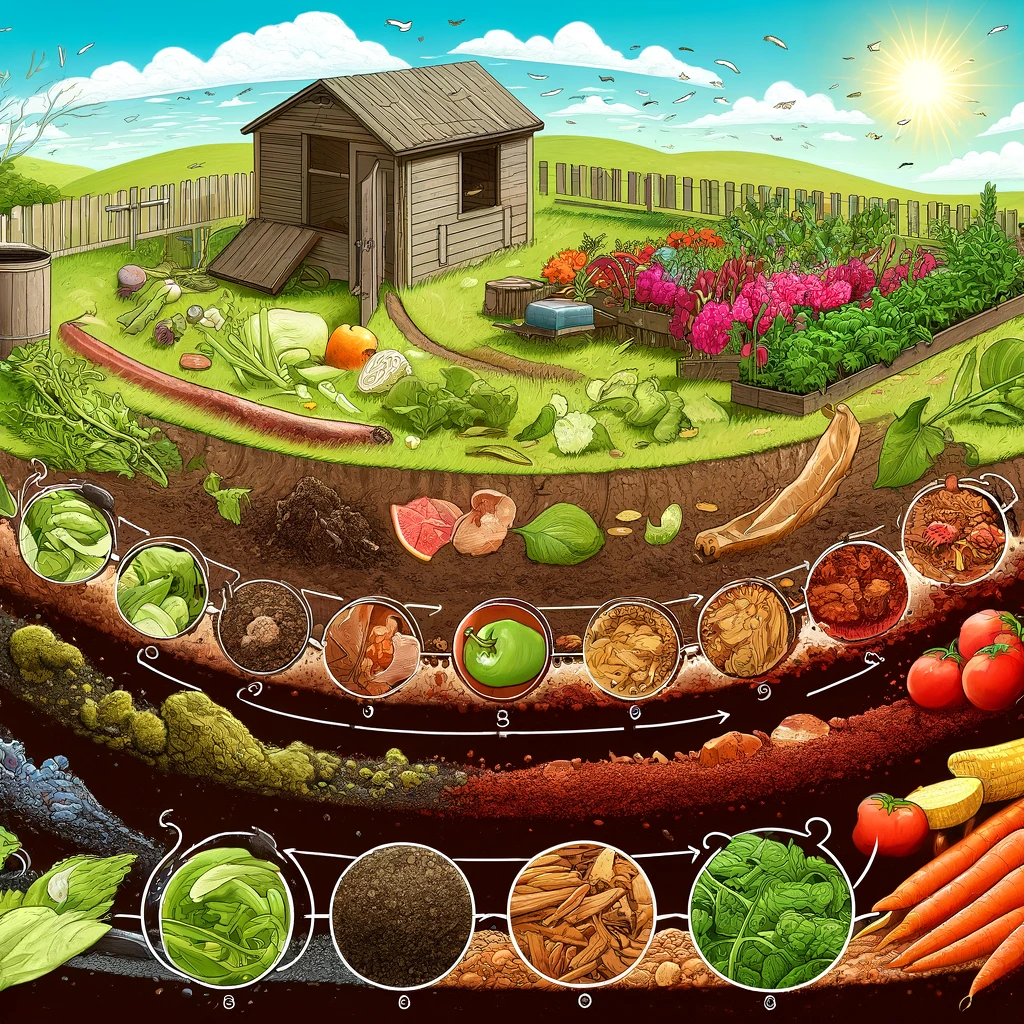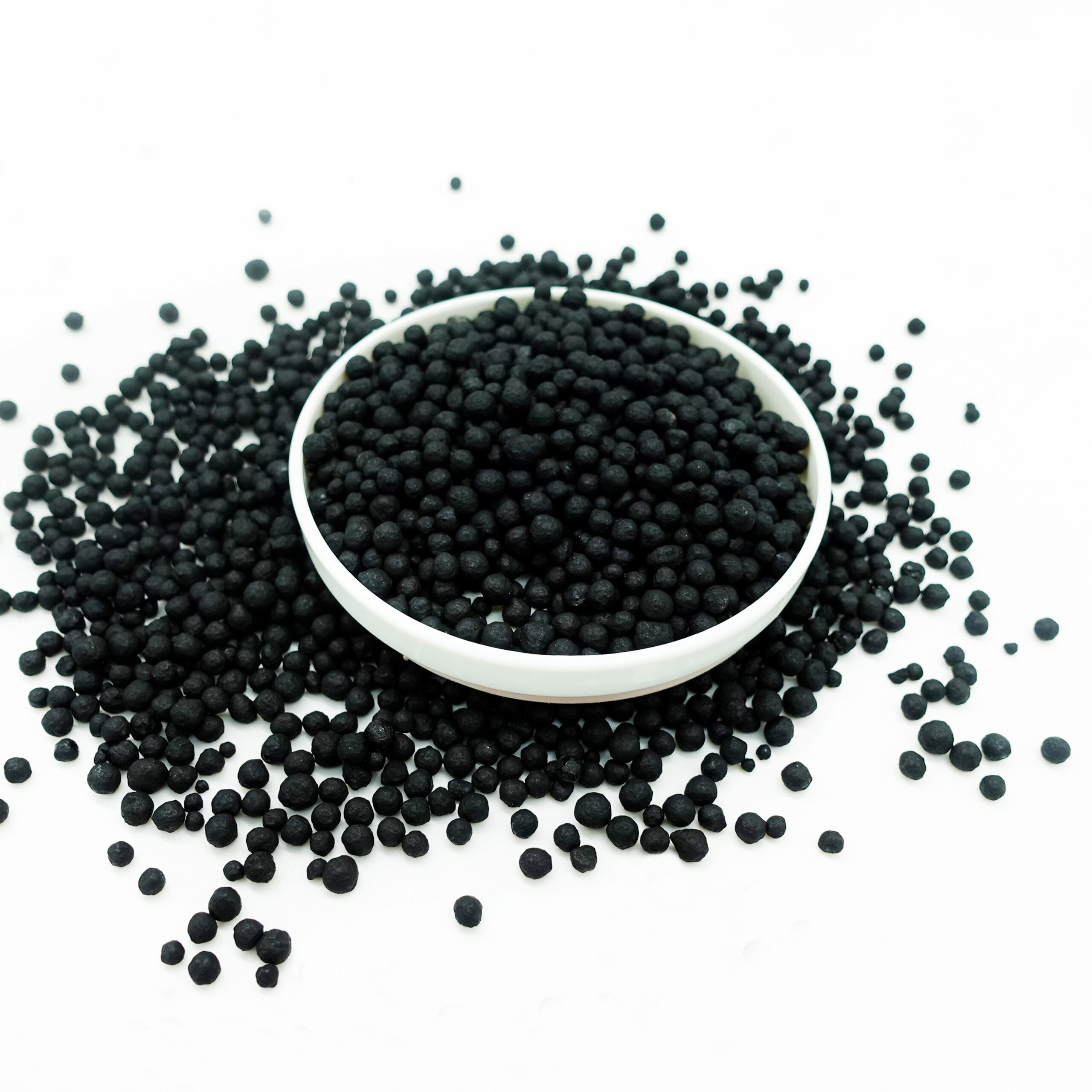Introduction to Organic Nitrogen Fertilizers
Without nitrogen fertilizers, growing plants would be a slow and uncontrollable process for humans. Nitrogens help to build all sorts of organic molecules for life including proteins which are especially important. However, nitrogen fertilizers do not come in only one type. There is a man-made version of synthetic nitrogen fertilizers, and an organic version of nitrogen fertilizers coming from biological sources.
Synthetic nitrogen fertilizers are produced in chemical factories. They are quick and easy to absorb by plants. However, they cause issues including soils acidification and nitrogen pollution of water. Organic nitrogen fertilizers possess slow-release properties, which match the pace of plant’s natural growth.
Organic nitrogen fertilizers include animal-, plant- or mineral-derived organic matter, and are more than just a source of nitrogen. In addition to fixing nitrogen, they improve the soil’s microbial life and increase soil structure and stability. Soil scientist Dr Jane Green explains: If we want to produce food without significant environmental damage, we should use organic nitrogen sources that maintain healthy soils and avoid the loss of nutrients linked with synthetic fertilizers.
Nitrogen is an essential ingredient in the growth of plants. It is used in chlorophyll, which plants use to generate food from sunlight energy, and it is a part of amino acids, which are the building blocks of plant protein. If the plants do not have the nitrogen they need to perform these processes, growth will be poor. Thus yield will be low with smaller and unhealthier plants. However, when you use nitrogen organic fertilizers, you are helping plants utilise their potential to their fullest. Plants given nitrogen fertilizers will grow up to be bigger and healthier, ensuring that the produce they generate will be the best, ultimately.
Advantages of Using Organic Nitrogen Fertilizers
One of the most important sustainable and environmentally friendly qualities of organic nitrogen fertilizers is that they improve the overall soil health. In contrast with synthetic fertilizers, organic fertilizers improve the soil structure, which promotes better water and air percolation, nutrient availability and distribution. Thanks to their high content of humic, fulvic and microbial acids, the microbiota of the soil is more active and efficient in decomposing organic matter in organic fertilizers and making it more available to plants.
The soil is the ‘environment of every environment on Earth,’ as Donna M Sciuto, a mycologist, put it. ‘If we are focusing on sustainability, we should have the best soil health we can possibly get,’ explains Emily Carter, an agricultural ecologist. ‘That means supporting a living soil ecosystem.’ Organic fertilizers have the ability to provide nutrition in a slow and relatively even manner mimicking natural ecological processes.
Other environmental benefits of organic nitrogen fertilizers are no less compelling: they reduce the risk of chemical runoff to nearby water bodies, which causes eutrophication (that is, algal blooms) and thus disrupts aquatic ecosystems. And they help to keep carbon off the (atmospheric) farm: they boost (meaning add to or increase) the organic matter in soils, which enables future plants to sequester carbon. As the Environmental Protection Agency states: ‘Organic fertilizers can play a role in carbon sequestration, which helps offset greenhouse gas’ emissions from agriculture.
These benefits might even be a significant part of the reason that nitrogen fertilizer was so disruptive to agricultural systems. Would farming without fertilizers have seen years of agricultural growth had the dark, crumbly soil with ample microbe lives they had depended on been maintained? Some studies suggest it could have. Organic fertilizer options, which improve soil health and lessen environmental impact all at once, promote healthy growth in crops and a healthier planet. It’s the kind of innovation which farmers can rely on to both sell more sesame pods and leave tomorrow’s children with a planet to enjoy them on.

Types of Organic Nitrogen Fertilizers
Organic nitrogen might be in solid form or liquid form; derived from animal or vegetable sources. Each of its types has a different origin and produces useful effects to soil and plants. A simple classification will help gardeners and farmers make the right decision about the best option for their particular type of agricultural exploitation. Organic nitrogen might be in solid form, commonly known as compost, or liquid form, commercialised as liquid manure, guano or pee. It is also a by‐product of the digestion of land‐breeding animals, especially cattle or chickens.
These kinds of organic nitrogen fertilizers are derived from animal products: blood meal – a highly concentrated dry powder made from any type of blood, in particular from animals slaughtered for meat – stimulates rapid growth in plants due to its very high level of nitrogen, while fish meal is a nitrogen-rich fertilizer made from processed fish, which also contains beneficial phosphorus and potassium. Manure is probably the most ancient type of fertilizer but it is a multi-nutrient source, as it provides not only nitrogen but also organic matter that improves the quality of the soil.
Organic plant-derived nitrogen fertilizers are waste products from plants. A popular choice is soybean meal, a byproduct of soybean oil production. This contains nitrogen at a higher percentage than untreated soybeans, and since nitrogen is slowly released back into the atmosphere in the meal, it has a slower and more even release into the soil. As another example, alfalfa meal (ground alfalfa plants) is rich in nitrogen, as well as several minerals that can moderate the pH of the soil, reducing acidity and increasing its ability to hold and provide nutrients.
Mineral fertilizers with organic nitrogen are naturally occurring compounds that contain nitrogen. This includes both naturally occurring manures and naturally occurring mineral fertilizers such as Chilean nitrate, also called sodium nitrate, which is mined from deposits formed naturally. Such fertilizers are fast-release and very soluble, which makes them ideal to provide a quick nitrogen boost in a single application.
Experts such as the soil fertility specialist Dr Lucas Martin demur. When choosing an organic nitrogen source, his experience suggests, it’s helpful to ‘think of the characteristics of the specific soil and plant in need’. He told me: Each organically derived mineral fertilizer has their own unique traits and traits. For example, if making a quick source of nitrogen is needed their [ie, mineral forms] relatively fast release may prove advantageous. However, if long-term soil health is the goal then integrating an animal or plant-based product may provide more long-lasting and sustainable benefits.
Organic types of nitrogen fertilizer help to promote plant growth without compromising sustainable agricultural methods, allowing farmers and gardeners to get a good yield while also favouring the health of the plants and the ecosystem as a whole.
Application Techniques for Organic Nitrogen Fertilizers
Because they must be applied effectively to gain the most benefits from natural nitrogens, use of these organic nitrogen fertilizers is strongly dependent on best practice. While there are several such practices and policies now, they can be boiled down to a few key themes. This includes a more efficient use of nutrients by the crops and, at the same time, better protection of the environment.
As with mineral fertilizer, timing of application is important in optimising the use of organic inputs. Organic nitrogen fertilizers should be applied when plants begin putting out new growth, typically at the start of the growing season. Follow-up application can happen at peak growth phases to maintain nitrogen uptake. As Rebecca Liu, an organic crop production expert at Pennsylvania State University, puts it: ‘A timing strategy that places [organic nitrogen] in the soil just before critical rapid growth phases will maximise uptake efficiencies and minimise environmental losses.
The application method is also important and can influence whether plants can use the nutrients well. When we fertilise by casting fertilizers uniformly over the surface of the soil and incorporating it into the soil with a garden fork or some other deep-digging tool, we are spreading the nutrients uniformly across the soil surface. When we fertilise by putting on bands of fertilizer along the sides of rows or at the base of plants, we are spot-fertilising, or applying a source of nutrients directly where the roots would be found. ‘Incorporation of fertilizers into soil can prevent the loss of nitrogen through volatilisation and the availability of nutrients at the root zones,’ Liu says.
Organic fertilizer application rates depends on the types of crops, the plants’ growth stages, the soil and the soil nutrients before application. Soil testing can help to fine-tune fertilizer application in many ways and enable farmers to avoid gaps by applying the right fertilizers at the right time in the right amounts. ‘It is very important to conduct soil testing prior to fertilizer application. This allows us to fine-tune fertilizer application to meet crop needs without creating waste,’ says Liu.
When adopted, these best practices can bolster plant growth, improve product quality, and help with environmental sustainability in organic agriculture. If nitrogen fertilizer is well-planned and applied properly, organically grown agricultural products can be as rich in nutrients as those grown with traditional inorganic fertilizers.

Impact of Organic Nitrogen on Plant Growth
It has been well documented in case studies and further researches that organic nitrogen fertilizers result in massive and remarkable increase in plant growth. The plants grown with the intervention of organic fertilizers prove to be healthier and yield more than the one grown using conventional synthetic fertilizers.
There are several studies confirming that plants fertilised with biological nitrogen sources show increased resilience and prolonged rates of growth. This is because organic fertilizers release a slow trickle of nutrients in line with natural periods of high demand, preventing the risk of ‘overdosing’ that can occur with synthetics. ‘Plants grown with organic nitrogen have been found to be more resilient to diseases and abiotic stresses,’ says Thomas Field, an agricultural researcher at Bio-Farms Association of NSW. ‘That likely comes down to the enhanced soil health and nutrient availability that organic fertilisation methods involve.
Introducing more life to the farm or garden boosts yields and consumer quality; a comparative test in the Journal of Eco-Friendly Agriculture showed that plants grown with organic nitrogen fertilizers such as blood meal and fish emulsion had higher nutrient value and superior taste to those grown with synthetic nitrogen. In addition, they were far less susceptible to pest attack because the plants were veritably teeming with life – organic nutrient sources trigger the enhanced natural defence mechanisms in plants.
Furthermore, they also help farmers to maintain long-term soil fertility – the organic nitrogen fertilizers increase the amount of organic matter in soils that, when incorporated into the soil, improves soil structure, water retention and biological activity, ultimately making a farming system less dependent on chemical inputs and increasing its resilience above and below ground.
Taken together, the evidence that nitrogen fertilizer organic options really deliver on their promise – especially when looking at the long-term effects on crop production and environmental health – is compelling. And with more and more farmers and gardeners lining up to give organics a try, the cumulative benefits of the organic approach to crop and soil management seem destined to increase the sustainability of agriculture worldwide, fostering crops and ecosystems that are healthier – all around.
Challenges and Considerations in Using Organic Nitrogen Fertilizers
Although the organic form of nitrogen fertilizers has many advantages, handling them has a number of problems to be considered, to achieve maximum benefits and sustainable usage.
One of the biggest difficulties here is the slow release of nutrients, compared with synthetic fertilizer. When an organic fertilizer is used, the nitrogen can take some months to start being broken down and released, depending on the conditions of the soil and the type and activity of the microorganisms living there. If nutrients are needed every few weeks on a high-growth crop, using organic fertilizer might mean applying it too soon, or not soon enough to maintain the demands of the crop.
Additionally, higher application volumes can also be problematic. Given lower nutrient concentrations in organic fertilizer products compared with synthetic ones, their use will require higher volumes to satisfy the same nutrient needs, with implications for increased labour and transport costs in applying them. ‘The logistics and extra cost of using organic fertilizers are considerable, but can be reduced with improved application and the use of anaerobic fermentation technologies,’ explains Maxwell.
Two other factors that can’t be neglected are cost and availability. First, organic fertilizers can be more costly than their synthetic equivalents mainly because they are less productive per unit of land (production costs are dominant in their pricing), owing mostly to higher production and processing costs. Second, there can be substantial variations in terms of availability depending on the production and processing capacity of the region. This can have implications for the accessibility of fertilizers to some farmers.
However, given the substantial long-term benefits associated with the use of organic nitrogen fertilizer – eg, greater soil health, decreased environmental impact, and stronger weed and pest resistance for more robust crops – those challenges, she says, are worth working through. ‘This is an investment in the future health of the land and of the local ecosystem,’ she says. ‘In the end, the benefits outweigh the costs.’
Now, if these difficulties are to be tackled and new research and extension programmes encouraged to realise greater uptake, farmers need to be assisted in becoming truly sustainable and low-carbon food producers. This means finding organic fertilizer products that both increase efficiency and are easy for smallholder producers to apply, as well as finding reliable infrastructure to store and bring these products closer to farmers.
Conclusion
In summary, organic nitrogen fertilizer options — while still requiring more research — have many advantages. It is time to consider their use as part of modern, sustainable agriculture. When combined with other practices that improve soil health and sequester carbon — such as reducing or ridding fields of synthetic nitrogen fertilizers, adopting cover crops, and minimising tillage — they can become part of a holistic, ecological approach to agriculture that improves ecosystem health and promotes productive, high-quality yields.
The future of farming, then, should rely more on these kinds of agronomic practices that use organic nitrogen fertilizers. For the agroecosystems of tomorrow, these kinds of fertilisation strategies are worth encouraging if we want our food systems to withstand both environmental pressures and climate change. The resilience of our food systems tomorrow depends on the long-term success of agroecological practices such as organic fertilisation that increase agriculture’s sustainability through the reliance of agroecosystems on the environment.
As Dr Fiona Maxwell, a biologist at the Research Institute of Organic Agriculture in Switzerland, puts it: ‘It is not only part of a strategy to create a food system that produces healthy, high-quality, sustainable food. Moving back to organic fertilisation is part of a wider and long-lasting endeavour to restore natural balances to the entire agroecosystem and, ultimately, to nature itself.’ This perspective places the commitment to organic production methods squarely within a paradigm shift in how we think about and treat our agricultural resources: it’s just one part of a big picture.
References for Organic Nitrogen Fertilizers
- “Sustainable Management of Organic Inputs in Soils of the Tropics“ by Paul L. G. Vlek and Andre Bationo – This book chapter discusses the challenges and strategies for managing organic nitrogen in tropical soils.
- “Nitrogen in the Environment: Sources, Problems, and Management“ – The comprehensive review on the role of nitrogen in environmental management, available through the ResearchGate network.
- Organic Nitrogen Fertilizers – An Overview | ScienceDirect Topics – A comprehensive overview of organic nitrogen fertilizers, including sources, application methods, and benefits for soil health.







